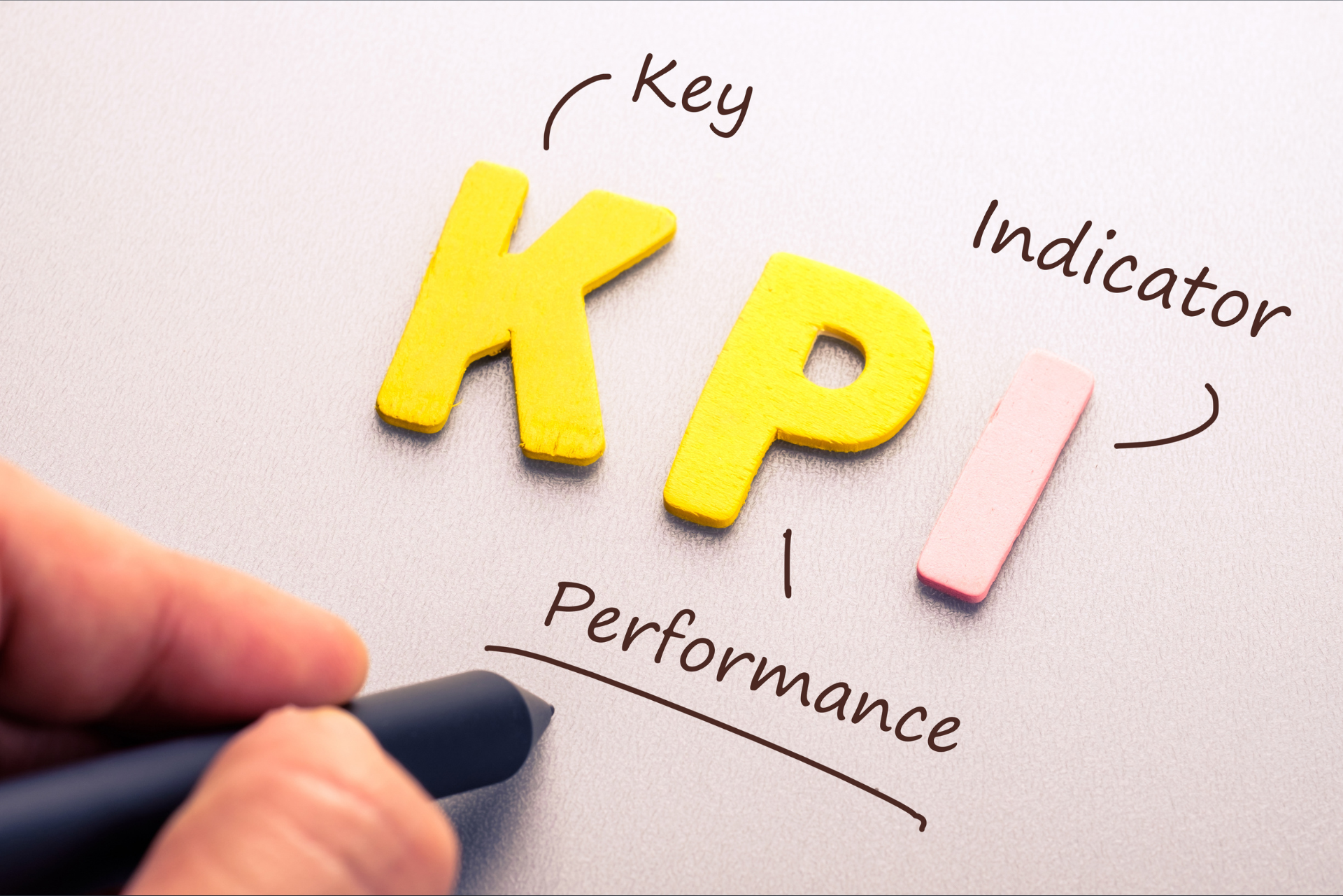SEO KPIs & Metrics: 9 SEO KPIs You Should (And Shouldn’t) Track
In the world of SEO, tracking metrics is essential to evaluating the success of your strategy. But not all numbers matter equally. A lot of SEO marketers can spend their time focused on metrics and KPIs that sound significant but, in reality, have little impact on rankings. Knowing which metrics to pay attention to – and which aren’t worth your time – is essential to getting more bang for your buck.
In this article, we dive into the SEO metrics you should (and shouldn’t) be tracking. Keep reading to learn which SEO KPIs matter the most and which aren’t worth stressing over.
CTA: Book a free SEO consultation to see what you’re doing well and where your website needs to improve.
SEO KPIs & metrics you should track
Let’s start with the big ones: SEO metrics that actually matter.
These KPIs are essential to tracking the success of your SEO strategy. Focus on these metrics to get the biggest results out of your efforts.
1. Search visibility
Search visibility, sometimes also called SERP visibility, measures how prominent your website is in the market. You find this by calculating the estimated percentage of clicks your website received from organic rankings for particular keywords. For example, if a keyword you rank for is searched 1,000 times, and you received 100 clicks, then your search visibility is 10%.
Why should you track search visibility?
Search visibility is one of the most crucial SEO KPIs to track as it can provide a glimpse into your overall business growth. While not directly linked to conversions, it provides an insight into your brand’s share of voice (SOV). SOV represents how much market size your brand owns compared to competitors. The larger your share of the market, the higher your SOV. If your website has high search visibility, it means you’re reaching a large portion of the market.
How to track search visibility
There are many ways you can track search visibility and different SEO tools you can use, such as Google Search Console, Ahrefs Rank Tracker, and SEMRush Visibility Trend Score.
Regardless of which tool you use, be sure to consider:
- Ranking positions for your target keywords (use the main keywords your target audience searches for, not long-tails)
- Estimated number of impressions
- Click-through-rate (CTR) for each keyword.
2. Conversions from organic traffic
Conversions are actions taken by website visitors, such as signing up, checking out, or subscribing. Conversions from organic traffic are when these actions are taken by visitors who found your website while performing a search. Most businesses are already tracking conversions as they’re one of the most vital key performance indicators.
Why should you track conversions from organic traffic?
This is possibly the most important out of all the SEO metrics you should be tracking. It’s one of the easiest ways to link your SEO efforts to your revenue and measure the success of your SEO strategy.
The conversions from organic traffic metric can also help businesses identify:
- Which keywords are leading to the most conversions (and therefore ROI)
- What visitors are looking for when they visit a website from search engine results pages
- Where to allocate their budget to increase conversions.
How to track conversions from organic traffic
The best way to measure this SEO KPI is by using Google Analytics 4. Setting this up can seem intimidating at first, however it’s rather straightforward and doesn’t require any advanced knowledge. If you haven’t yet installed Google Analytics 4, our team can help you set this up so it tracks the right conversions for your business.
Once you have GA4 installed, you have to set it up to track the right conversions. If you run an ecommerce store, for example, then you’ll likely want to track the number of conversions, value, and average order value. If you’re a service or subscription-based business, you may want to track leads, subscriptions, and sign-ups.
3. Search rankings
Search rankings, or keyword rankings, is a measurement of your website’s position in search engine results for specific keywords or queries. Its results will differ depending on the page, search, term, and day.
For example, a particular page on your website might rank highly for one term but lower for another. You might be ranking well for a keyword one day and then lose that ranking another day. These fluctuations are normal, but it means you should regularly track your search engine ranking to identify these variables.
Why should you track search rankings?
All search engine optimization strategies revolve around ranking for relevant keywords. Tracking your search rankings is therefore one of the most important SEO KPIs to assess whether your efforts are working.
Tracking search rankings allows you to:
- Measure the effectiveness of your SEO strategies
- Assess the success of your keyword targeting & optimization efforts
- Identify fluctuations in rankings that can reflect algorithm changes or website updates
- Compare your SEO performance with competitors in the same niche or industry.
The ultimate goal of tracking keyword rankings is to make sure your web pages are ranking for the right keywords. Once they’re doing this, you can focus on attracting traffic, leads, and conversions.
How to track search rankings
You can use various SEO tools, such as Ahrefs, SEMRush, or Moz, to track your ranking in search results.
If your pages aren’t ranking well for target keywords, our team can help you identify the reasons and optimize your website to boost rankings. If your pages are ranking well, you should also check whether these rankings are leading to other valuable metrics, such as leads and conversions.
4. Backlinks
Backlinks are one of the most important ranking factors and are therefore an essential SEO metric to track. These are links from other websites that direct to your site. Backlinks help boost your webpage’s credibility and perceived authority in search engine algorithms while also driving referral traffic to your website.
Why should you track backlinks?
Keeping track of your backlinks is one of the most important SEO metrics for several reasons:
- It’s a good way to measure your SEO, PR, and content marketing efforts. Building new and high-quality backlinks generally means that you have good quality content on your website and you’re building valuable relationships within your industry or niche.
- It can be a reflection of your search engine visibility: the more high-quality backlinks your website has, the higher it will rank on search engine results pages.
- When tracked along with other SEO KPIs, it can help you understand how building new backlinks and losing backlinks affects your overall ranking in search engines. High-quality links may improve your website authority while spammy ones may reduce it.
It should be noted that tracking backlinks is only an important SEO KPI if you’re actively building links and keeping track of your outreach success.
How to track backlinks
You’ll generally find out if a link building effort was successful by receiving a positive reply from the person you’ve reached out to or by finding the link in your SEO tool. SEO tools that can provide insight into your backlink profile include Ahrefs, Moz, or Majestic.
If you’re already doing link prospecting and outreach, you probably have some kind of spreadsheet or document that tracks your progress. This makes it super simple to track backlinks. Simply add a column or comment to this spreadsheet where you can note whether you acquired or lost that link.
When tracking backlinks, be sure to focus on both new links acquired as well as links you have lost. This can help you quickly identify lost backlinks that may negatively impact your rankings.
SEO KPIs & metrics you shouldn’t track
Let’s move on to less important SEO metrics that aren’t worth keeping an eye on.
While these metrics may still be valuable, they’re less likely to boost rankings or make a significant impact on your SEO efforts. If you’ve been tracking these stringently, breathe a sigh of relief and let go – it may not be worth your while.
5. Organic traffic
This measures all the traffic your website receives from non-paid clicks on search engines. While having more organic traffic to your website is great, it doesn’t always result in more revenue. As a result, it’s not a particularly important SEO KPI to track.
The only reason you’d want to track organic traffic is if you intend to monetize your website with display ads.
6. Click-through rate (CTR)
Your click-through rate shows the number of users who viewed your search engine listing versus the number of those who clicked through to your website. While it’s not a direct ranking factor, it can be a way to measure the effectiveness of your search engine listing in attracting visitors to your website.
That said, CTR is not an essential SEO KPI to track. There are a few reasons for this:
- A high CTR doesn’t always translate to more sales or revenue
- You can have a high CTR by using a click-bait title, and then lose visitors once they land on your website
- It can be affected by various factors that are outside of your control. This means you cannot always take proper action to change CTR.
7. Core web vitals
Core web vitals are a set of specific website performance metrics related to speed, responsiveness, and user experience. These have been considered a minor ranking factor by Google since 2021, however the word ‘minor’ is key here. While core web vitals have their place in SEO success, they’re unlikely to give your website a significant ranking boost.
Here’s what we think: if any of your core web vitals metrics are bad, it’s worth fixing them as they can be crucial for user experiences and responsive design. However it’s not an SEO KPI you should be tracking consistently. Especially if you have a small website and limited resources, you’re better off focusing your attention on tracking SEO KPIs that are more significant.
8. Engagement metrics
These metrics relate to how your site visitors engage with your website. You can easily find engagement metrics on Google Analytics – they include things like bounce rate, engagement rate, average session duration, time on page, etc.
While these metrics are important for showing user engagement with your page, they don’t really reflect your SEO growth or business performance. On top of that, engagement metrics can be skewed by various factors:
- There’s no proper methodology used to calculate some of these metrics, leading to flawed results.
- They can be affected by improper setup of Google Analytics and factors like adblock users and session timeouts.
- They only provide valuable insights after heavy segmenting, for example, on a page level for a specific traffic source.
Our thoughts? Engagement metrics are worth tracking if you have enough time and resources to do so. Focus on other, more essential SEO KPIs first, and then look at these as a secondary metric.
9. SEO ROI
ROI stands for return on investment. Your SEO ROI estimates the value brought in by your SEO campaigns in contrast to their cost.
Here’s how to calculate your SEO ROI:
SEO ROI = (value of organic conversions – cost of SEO campaigns) / (cost of SEO campaigns) x 100.
Tracking ROI is an essential metric for nearly all marketing efforts, however when it comes to SEO things are a little different. Firstly, measuring the precise impact of SEO efforts on specific sales or conversions can be difficult due to various touchpoints and factors that influence user behavior. Secondly, SEO is a long-term game and results aren’t always seen immediately. This makes it a challenge to confidently say that X SEO activity achieved Y result.
The only reason it’s worth tracking SEO ROI is if you need to present it to a client, manager, or stakeholders. If you need to do this, try to get as detailed as possible and track your ROI at the keyword, page, or category level. Otherwise, it’s not really a worthwhile metric to measure.
Focus on SEO KPIs that matter
Tracking SEO metrics is essential for any marketer, but it’s important to know which metrics hold the most weight. In this guide, we highlighted the most important SEO KPIs worth tracking. Focus on these key factors and you’ll drive your website’s performance without being bogged down by unnecessary numbers.
Want to cut through the noise of metrics and data? Get in touch with our team for a free SEO consultation. We’ll show you where your website is lacking and what you need to focus on to see the growth you want.





